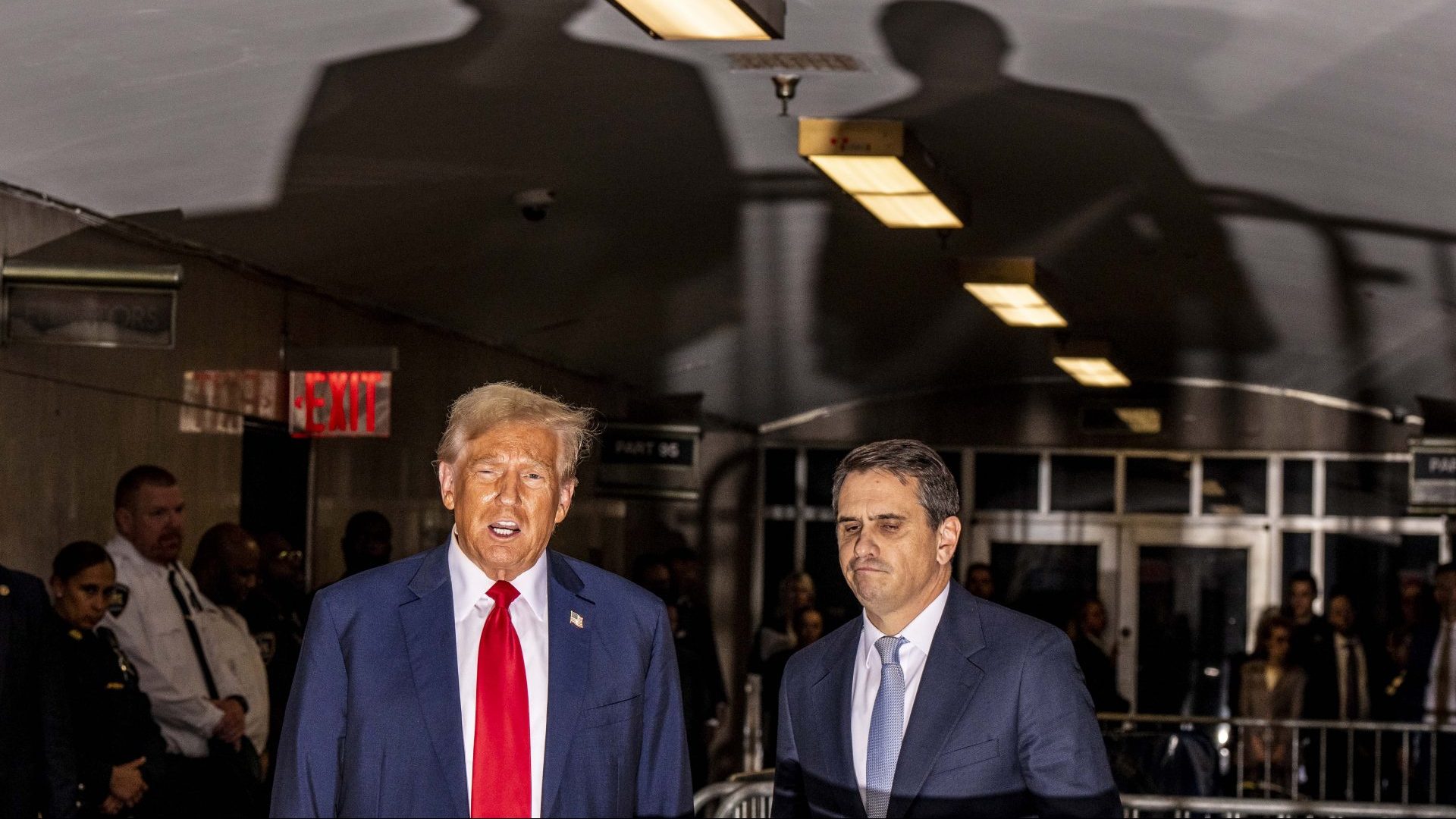Do you know the date of the last Welsh uprising against English rule? Or in which century St Augustine arrived in Britain? Without Googling, neither do I.
But these are “practice questions” for the “Life in the UK” test, where would-be Brits are forced to pay £50 a time to answer an inane quiz until they get 75% of the answers right.
It’s just a tiny symbol of the randomness that pervades our immigration system, which – from the rules on the Bibby Stockholm barge, to the £38,700 minimum a skilled migrant has to earn – seems designed to create an atmosphere of chaos and distrust.
Soon the chaos will be owned by a Labour government. And from the get-go, it will be under siege from an alliance of Tory right wingers, Faragists and the people who rioted on Whitehall on St George’s Day, some of whom were apparently incensed by the replacement of tea by coffee, and the decline of “meat and two veg”.
And once the election is won, the Labour Party itself will have changed. With a big enough swing, Labour will have MPs from Deal and Dover, where most of the refugee boats land, from Dorset South, where the Bibby Stockholm is moored, and from places across the Red Wall where, in 2019, immigration was the No 1 issue that drove people to vote Tory. The character of the Parliamentary Labour Party, which is today fundamentally metropolitan, will alter.
So Labour has a golden opportunity to end the chaos in the migration system and re-establish consent. It also has a golden opportunity to mess things up. And unlike with the economy, or crime, where voters are often fatalistic, Labour’s own research shows migration is a live and emotive issue among the very voters it needs to win and keep in 2024.
Last month, in a report for the think tank Labour Together, Christabel Cooper, Sarah Mulley and Will Sommerville made three suggestions. First, that Labour must exert control over the system, actively smashing the smuggling gangs and signing a returns agreement with our European neighbours. Second, it must pass tough regulations to prevent the exploitation of legal migrants. Third, Labour should actively encourage those who migrate here to become British citizens.
It’s fair to say the official reception was lukewarm. Because it coincided with an appeal by Lord Blunkett to revive the idea of ID cards, and was trailed with an article in the Daily Express, there was an involuntary shrug of revulsion in some Labour circles. But the problems the report addressed won’t go away.
In the first place, Labour needs to repeal all the Rwanda laws immediately. As the Refugee Council points out, unless it does so, it will leave 112,000 asylum seekers in permanent limbo, unable to be processed, unable to be removed and costing £6.2bn a year to house.
On top of that, it will take a lot more than the current effort to “smash the gangs” – not just because they are international in character, but because it means delegitimising their operations here in Britain, targeting not just the trafficking bosses but the financial, business and social networks that protect them.
To end the small boat crossings for good, Labour will need to sign a returns agreement with France, regularise the vast majority of those already here, agree a quota of refugees with Europe, and open safe, legal routes where asylum claims can be made abroad. None of that will be popular with the “meat and two veg” crowd, but it’s essential.
Second, regulating the labour market better will not, on its own, allay the fears of Labour’s new-found voting base about the pressure legal migration places on services and housing costs. We need to bring discussions about the costs and benefits of legal migration into the official sphere.
Instead of today’s arbitrary demand for a £38,000 minimum wage to get a work visa, government, employers and unions could agree on a statutory annual target figure for work visas, with wages and numbers agreed sector by sector, and local public service budgets adjusted in real time.
That way, the government could demonstrate to the sceptics that it is managing legal migration for the common good.
Third, if we’re going to promote the citizenship route, there needs to be an active and diverse movement for integration. The Welsh and Scottish governments have made great progress on this, because they can mobilise national cultural values and institutions that have adapted to multi-cultural reality.
In England, without a devolved government and with deep cultural divisions over the meaning of Englishness, that is harder to achieve.
One of the most positive things the incoming Labour government could do for migration politics is to craft, through its actions and at big cultural moments, an inclusive core narrative around British values, one that can encompass facts about both D-day and the Bengal Famine.
Finally, I don’t think Labour can avoid the question of ID cards, or more accurately digital ID. Go to any big city A&E and you will see young foreign workers, whose health needs are entirely legitimate, having to wave their passports at the triage nurse.
One recent court case alone, which convicted just two traffickers, revealed they were running four “forgery factories”, churning out hundreds of work certificates for the construction industry. The people-smugglers are already in the ID business. We need, as a society, to catch up.
In Estonia, there is a mandatory digital identity register, which facilitates e-voting, tax filing, access to benefits and public health care. It is available both to citizens and migrant workers, and it embodies an explicit social bargain: everyone is getting what they are entitled to; no one can be scamming the system or here “illegally”.
The Estonian system breeds solidarity and confidence, and it is these values, above all, that Labour needs to promote as it prepares to face down the far right backlash.




